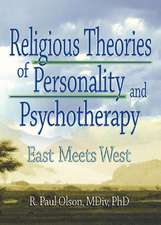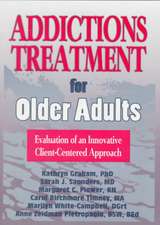The Vulnerable Therapist: Practicing Psychotherapy in an Age of Anxiety
Autor Helen W. Coaleen Limba Engleză Paperback – 24 mar 1998
The Vulnerable Therapist will capture your interest with its broad systemic approach, contextual analysis, fascinating case studies, and anecdotal material. You’ll see the need for improvement at the institutional and individual levels of the psychotherapy professions. Specifically, you’ll read about:
- social, cultural, and contextual aspects of the crisis of meaningin psychotherapy
- professional responses to the crisis of meaning which create ethicaldilemmas for individual practitioners
- the power of language to construct and control mental health beliefs
- psychotherapy’s core constructs and ethical “buzzwords”
- psychological and legal risks in practicing psychotherapy today
- specific problems with licensing boards and other complaint channels
- problems with rule-based ethics
- alternative models for creating ethical therapist-client relationshipsToday, more and more, excessive litigation and market-driven forces are imposing standard ethics decisions on psychotherapists, forcing them to see their clients through the clouded lenses of risk management and liability instead of through the lens of therapeutic need. Much like the symptomatic children whose dysfunctional family stops blaming them and starts shouldering part of the “problem,” distraught therapists need the psychotherapy profession to address its own psychopathology at the institutional level. The Vulnerable Therapist shows how you can contribute to a total revamping of the mental health professions in a way that facilitates rather than impedes ethical functioning.
Preț: 223.15 lei
Preț vechi: 281.27 lei
-21% Nou
Puncte Express: 335
Preț estimativ în valută:
42.71€ • 44.42$ • 35.26£
42.71€ • 44.42$ • 35.26£
Carte tipărită la comandă
Livrare economică 15-29 aprilie
Preluare comenzi: 021 569.72.76
Specificații
ISBN-13: 9780789004802
ISBN-10: 0789004801
Pagini: 294
Dimensiuni: 210 x 297 x 19 mm
Greutate: 0.45 kg
Ediția:1
Editura: Taylor & Francis
Colecția Routledge
Locul publicării:Oxford, United Kingdom
ISBN-10: 0789004801
Pagini: 294
Dimensiuni: 210 x 297 x 19 mm
Greutate: 0.45 kg
Ediția:1
Editura: Taylor & Francis
Colecția Routledge
Locul publicării:Oxford, United Kingdom
Public țintă
Professional Practice & DevelopmentCuprins
ContentsPreface
- Acknowledgments
- Chapter 1. Introduction: Ethical Contexts, Ethical Rules
- What Is Context?
- The Relevance of Context to Professional Ethics
- Problems with Rule-Based Ethics
- The Impossibility of Functioning Ethically in an Unethical Profession
- Summary
- Chapter 2. The Crisis of Meaning in Psychotherapy and the Vulnerable Therapist
- Loss of Meaning
- The Gods of Individualism, Narcissism, and the Marketplace
- The Themes of Victimhood and Survivalism
- From Individual to Social Pathology
- The Mental Health Professions’ Reponse to the Crisis of Meaning
- The Need for Transformation in the Mental Health Professions
- Summary
- Chapter 3. Social Constructionism and Its Implications for the Mental Health Professions
- The Evolution of Social Constructionism
- Psychotherapists: Latecomers to Social Constructionism
- Implications of Social Constructionism for Psychotherapy
- Summary
- Chapter 4. Language: Some Theoretical Considerations
- Language: The Meaning Maker
- Classical Theories of Language
- The Social Construction of Language
- Categories, Prototypes, and Idealized Cognitive Models
- Language Development in Children
- The Power to Define Good and Bad, Sane and Mad
- Summary
- Chapter 5. Diagnosis: The Power to Name
- The Social Control Functions of Diagnosis
- Professional Resistance to Feminist Revisions of Diagnosis
- Institutional Self-Preservation: A Hidden Agenda of DSM
- The Accomodation of Other Disciplines to the DSM
- Summary
- Chapter 6. Social Constructionism’s Challenge to Traditional Mental Health Beliefs: Some Addtional Examples
- Ideas About the Self
- Ideas About Child Development and Developmental Stages
- Ideas About Feelings
- Ideas About Intelligence
- Ideas About Family
- Summary
- Chapter 7. The Language of Professional Ethics: Some Buzzwords
- Touch in Psychotherapy
- Boundaries
- Dual Roles
- The Risks of Risk Management
- Summary
- Chapter 8. Legal Vulnerability: Context
- Incidence of Complaints Against Psychotherapists
- Factors Contributing to the Legal Vulnerability of Therapists
- Summary
- Chapter 9. Licensing Boards, Malpractice Actions, and Profiles of Complaints
- Licensing Boards
- Malpractice Actions
- Profiles of Complaints
- The Mental Health Professions as Incestuous Systems
- Summary
- Chapter 10. Psychological Vulnerability
- Values, Beliefs, and Practices
- Practice Context
- Life-Cyle Issues
- Sudden and Unpredictable Crises and Events
- Unique Aspects of Therapist History, Character, and Emotional Life
- Increased Psychological Vulnerability in a Context of Anxiety and Litigiousness
- Summary
- Chapter 11. Alternatives to Traditional Models
- Feminist Ethics
- Social Constructionist Ethics
- The Ethics of Communal Welfare
- Ethics by Character of the Therapist
- Summary
- Chapter 12. Toward an Ethic of Multiplicity and Mutuality
- Honoring All Voices
- Mutuality
- Summary
- Chapter 13. Toward an Ethic of Care, Compassion, and Character
- Care and Compassion in the 1990s Context
- Care and Compassion: Essential Components in the Client-Therapist Relationship
- Care and Compassion: The Self of the Therapist
- Care and Compassion for Colleagues
- The Character of the Therapist
- Summary
- Chapter 14. Toward Transformation
- Problems in Our Current Approaches to Ethics
- Alternative Ethical Models
- The Ethical Therapist
- Toward an Ethical Perspective at the Institutional Level
- References
- Index
Notă biografică
Helen Coale, LCS LMFT, is a licensed marriage and flimily therapist and social worker at the Atlanta Area Child Guidance Clinic in Atlanta. Georgia. An experienced supervisor and psychotherapist for children, adolescents, adults, and families, she has published oii such topics as family therapy, divorce and remarriage, child welfare, brief therapy, use of humor and ritual in therapy, and the interface between psychotherapy and the law.
Descriere
The Vulnerable Therapist will capture your interest with its broad systemic approach, contextual analysis, fascinating case studies, and anecdotal material. You'll see the need for improvement at the institutional and individual levels of the psychotherapy profession.
















